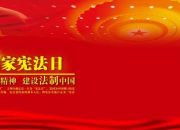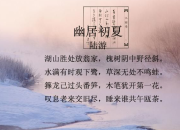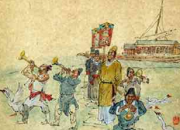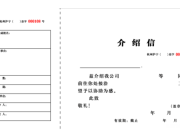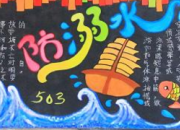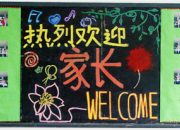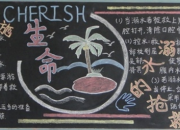英语疑问句课件
时间:2021-08-31英语疑问句课件
这两个动词既可以做情态动词又可以做行为动词。做情态动词时,直接将它们移到句首。下面是小编整理的相关内容,欢迎大家阅读参考!
英语疑问句语法解析:陈述句变一般疑问句的方法
用yes或no来回答的疑问句,一般疑问句用升调。陈述句变为疑问句时分三种情况:
1. 陈述句中有系动词be、助动词be, have / has, do, will, would, shall, should, had或情态动词can, could, may, might, must, dare, need, ought时,将这些系动词、助动词或情态动词移到句首,并在句末加上问号。如:
I'll go to the History Museum this afternoon. — Will you go to the History Museum this afternoon? 今天下午你去了历史博物馆吗?
I visited Beijing last month. — Did you visit Beijing last month? 上个月你参观了北京吗?
在对疑问句进行回答时,须注意:
(1) 当回答could, would所提的问题时,一般用can, will. 如:
—Could you help me with my homework this evening? —Yes, I can. / No, I can't.
—Would you go there right now? —Yes, I will. / No, I won't.
在对方向你表示邀请时,可用OK, sorry等来替代Yes,No.
(2) 在对用may所提问题的否定回答时,一般用mustn't / can't;而在对用 must所提的问题进行否定回答时,一般用needn't / don't have to. 如:
—May I use your bike now? —Yes, you may. / No, you can't. (mustn't)
—Must I stay at school this afternoon? —Yes, you must. / No, you needn't (don't have to).
2. 原陈述中没有系动词be、助动词be, have / has, do, will, would, shall, should had或情态动词can, could, may, might, must, dare, need, ought时,则在句首加助动词Do的适当形式,同时,将谓语动词变为原形动词。如:
We speak Chinese. — Do you speak Chinese? 你讲汉语吗?
I went shopping yesterday. —Did you go shopping yesterday? 昨天你去买东西了吗?
3. 原陈述句中,若谓语动词是have / has, 则须考虑have / has的意义。如果have / has是“有”的意义时,变为疑问句时,既可在句首加Do的适当形式,也可将have / has,提到句首。如:
He has a beautiful pen. —Has he a beautiful pen? / does he have a beautiful pen? 他有一只漂亮的钢笔吗?
但若have / has,的意思不是“有”时,变为疑问句时,则必须在句手加Do的适当形式。如
I have lunch at home. —Do you have lunch at home? 你在家吃中饭吗?
We had a meeting last night. —Did you have a meeting last night? 昨天晚上你开会了吗?
(4) 原陈述句中有情态动词used to时,它的一般疑问句,可将used移到句首;也可在句首加Did 。
I used to go swimming in the river. —Did you use to go swimming in the river? / Used you to go swimming in the river? 你过去常常去那条河里游泳吗?
(5) 当心need, dare两个动词。这两个动词既可以做情态动词又可以做行为动词。做情态动词时,直接将它们移到句首。此时,若用need的问句,肯定回答时用must,否定回答时,用needn't。若作行为动词,则用Do的适当的形式提问。如:
—Need I come here tomorrow?—Yes, you must. / No, you needn't.
—I need to go to school now. —Do you need to go to school now?
—Dare you tell your father about it?
—Do you dare to go out at night?
英语疑问句语法解析:which, what与who的用法有何区别
1. which 和 what 均可与名词连用,表示对人或物提出疑问(但 who 不能这样用)。一般说来,当选择范围较小或比较明确时,用which; 当选择范围较或不明确时用what。如:
Which is bigger, the sun or the earth? 太阳和地球哪个大?
What writers do you like? 你喜欢哪些作家?
注意,以上区别只是一般原则,并不绝对。如也可说:
Which writers do you like? 你喜欢哪些作家?
Which [What] will it be—tea or coffee? 这会是什么——茶还是咖啡?
2. which, what, who 均可用作代词(即其后不跟名词)。关于 which 和 what的和法区别跟上面的'分析相似。这里只谈谈 who 的用法:who 一般只用来指人,不管选择范围大还是小,明确还是不明确均可用(当选择范围比较明确且用作宾语时 who 也可用或 which 或 which one 代之)。如:
Who won—Tom or Mike? 谁赢了—汤姆还是迈克?
Who is your favourite poet? 你最喜欢的诗人是谁?
Who [Which, Which one] do you like best—your father or your mother?你更喜欢谁——父亲还母亲?
3. 正由于 what 和 who 的选择范围可以很大或不明确,所以其后可以跟else,但一般不跟表示特定范围的 of 短语;which 的选择范围相对比较小或明确,所以其后一般不接else,但却常 of 与短语连用。如:
Who [What] else did you see there? 你在那儿还看到了别人的什么人什么东西?
Which of the three girls is the oldest? 这三个女孩中哪个年纪最大?
不过,以上说的也是一般情况,有时也有例外,如有时也说:
Who of you three first thought of this? 你们三人中谁最先想到这一点?
【英语疑问句课件】相关文章:
1.疑问句课件
5.英语初中课件
6.英语的优秀课件
7.英语主谓宾课件
8.英语口语课件


